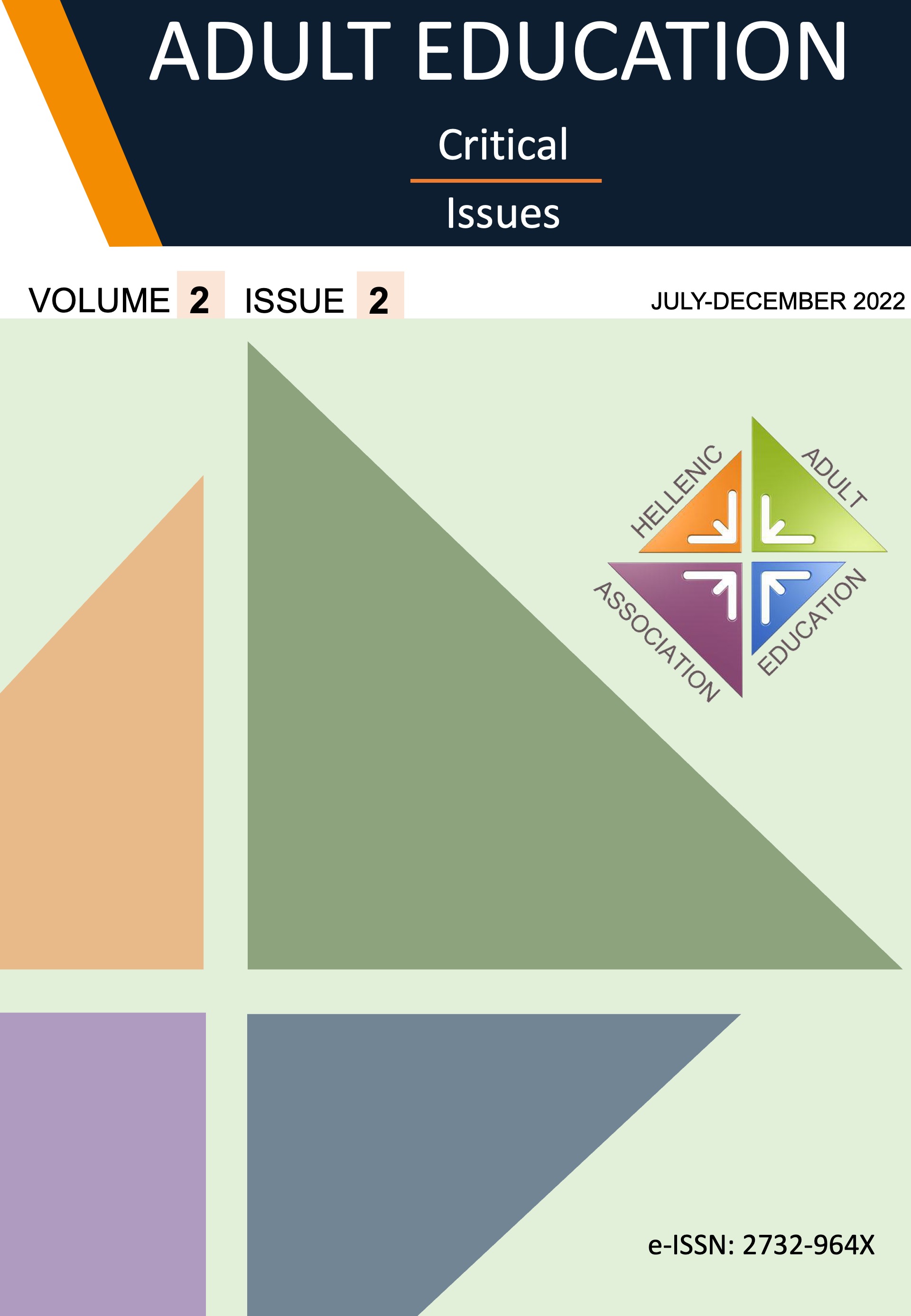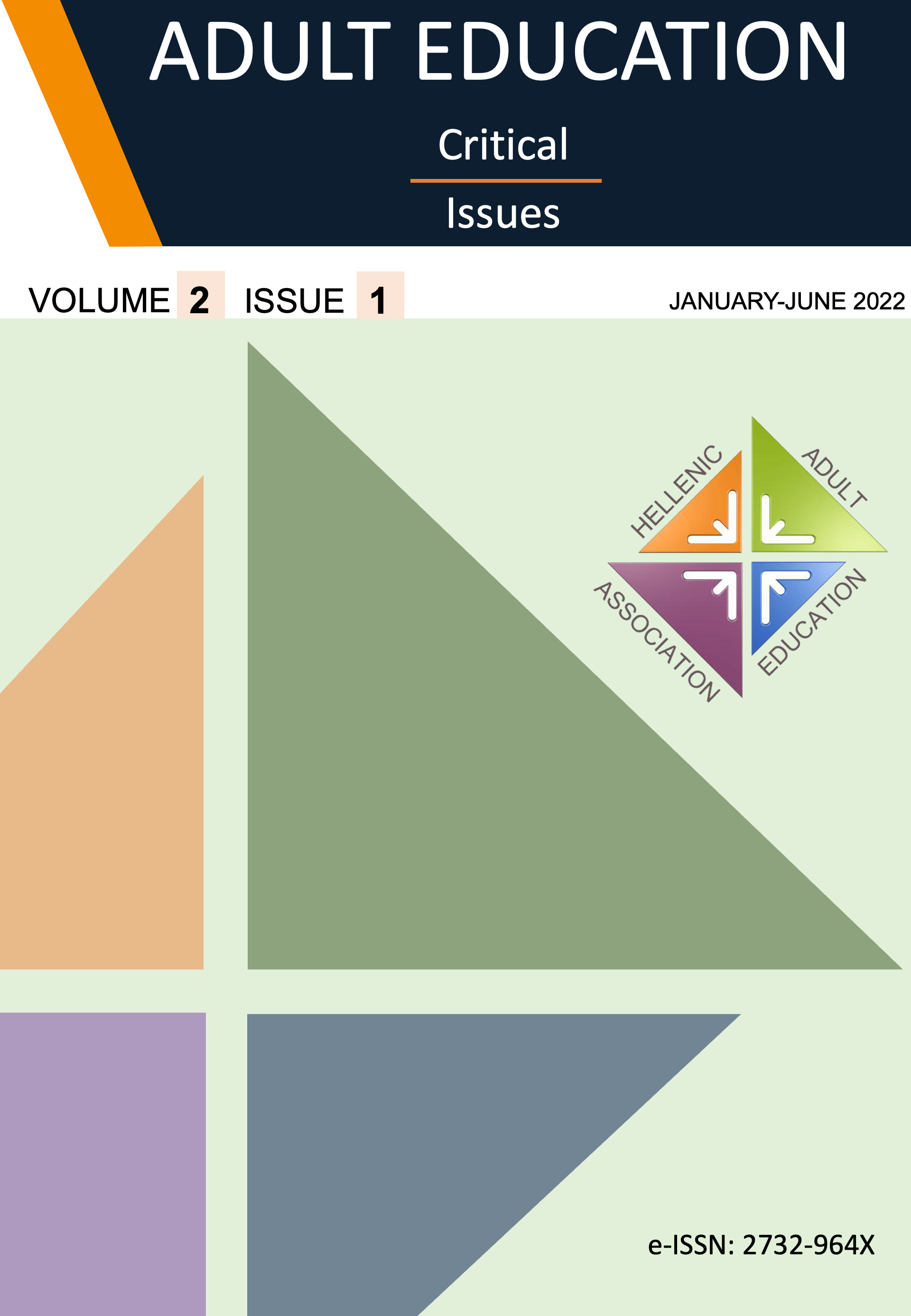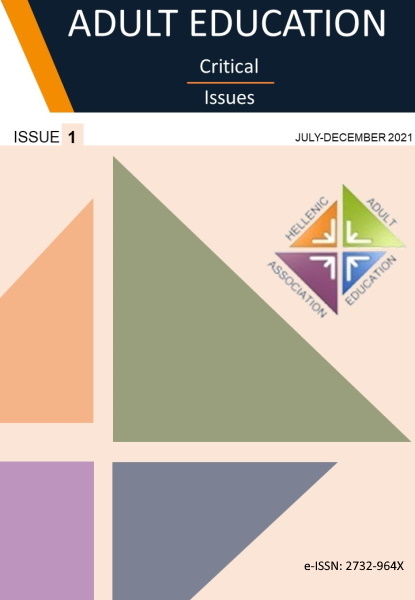Transformative learning theory, theoretical field or metatheory?
Abstract
In the present response to the journal’s survey, I mainly discuss the present state of affairs of the transformative learning (TL) theoretical framework. I argue that, on the one hand, various theoretical contributions have significantly expanded and enriched Jack Mezirow’s initial conceptualization. On the other hand, the ever-increasing theoretical views led to the fragmentation of the theoretical field and to uncertainty as regards its components and terminology. Accordingly, I claim that a collective metatheoretical work that should attempt to seek for points of agreement and synthesize the various perspectives might favor the development of a more integrated TL theoretical framework.
Article Details
- Come citare
-
Kokkos, A. (2024). Transformative learning theory, theoretical field or metatheory?. Adult Education Critical Issues, 4(1), 42–48. https://doi.org/10.12681/haea.38429
- Fascicolo
- V. 4 N. 1 (2024): January - June 2024
- Sezione
- Articles

TQuesto lavoro è fornito con la licenza Creative Commons Attribuzione 4.0 Internazionale.
Authors who publish with this journal agree to the following terms:
- Authors retain copyright and grant the journal right of first publication with the work simultaneously licensed under a Creative Commons Attribution License that allows others to share the work with an acknowledgement of the work's authorship and initial publication in this journal.
- Authors are able to enter into separate, additional contractual arrangements for the non-exclusive distribution of the journal's published version of the work (e.g., post it to an institutional repository or publish it in a book), with an acknowledgement of its initial publication in this journal.
- Authors are permitted and encouraged to post their work online (e.g., in institutional repositories or on their website) prior to and during the submission process, as it can lead to productive exchanges, as well as earlier and greater citation of published work (See The Effect of Open Access).






